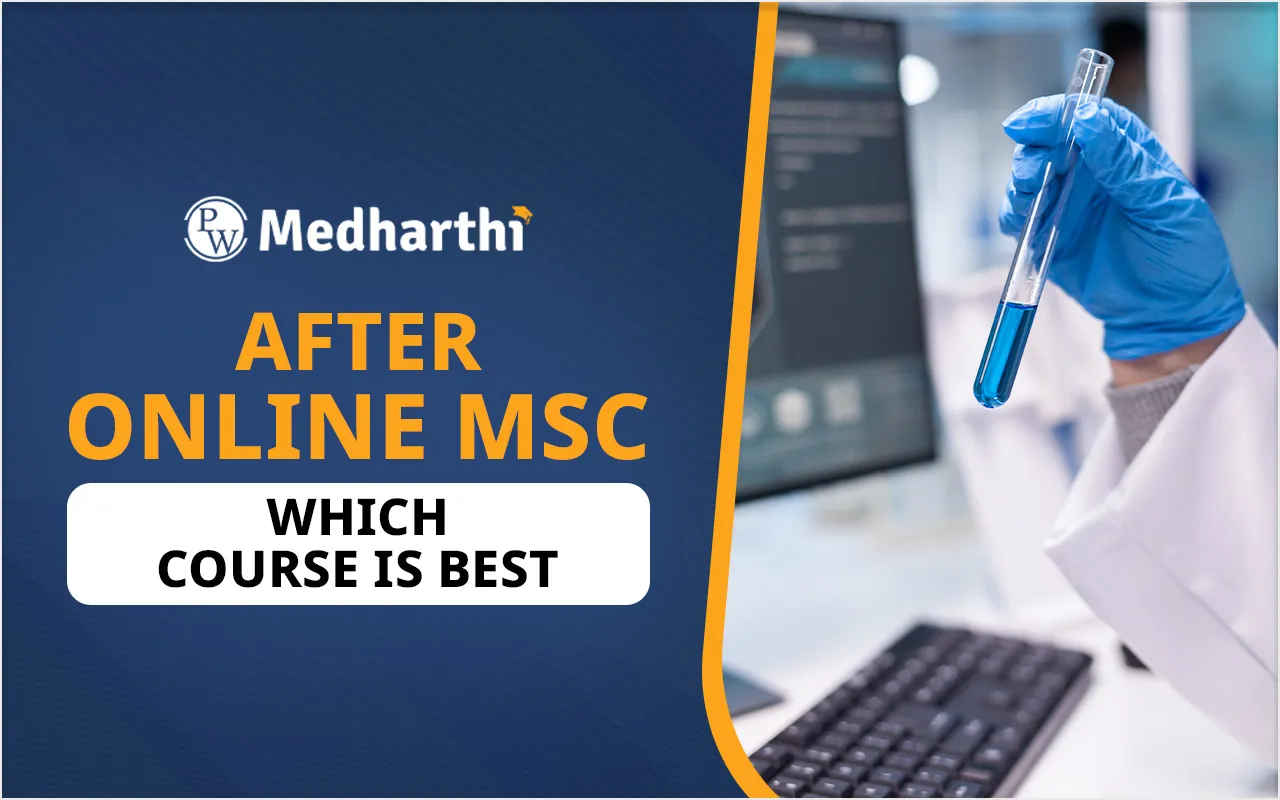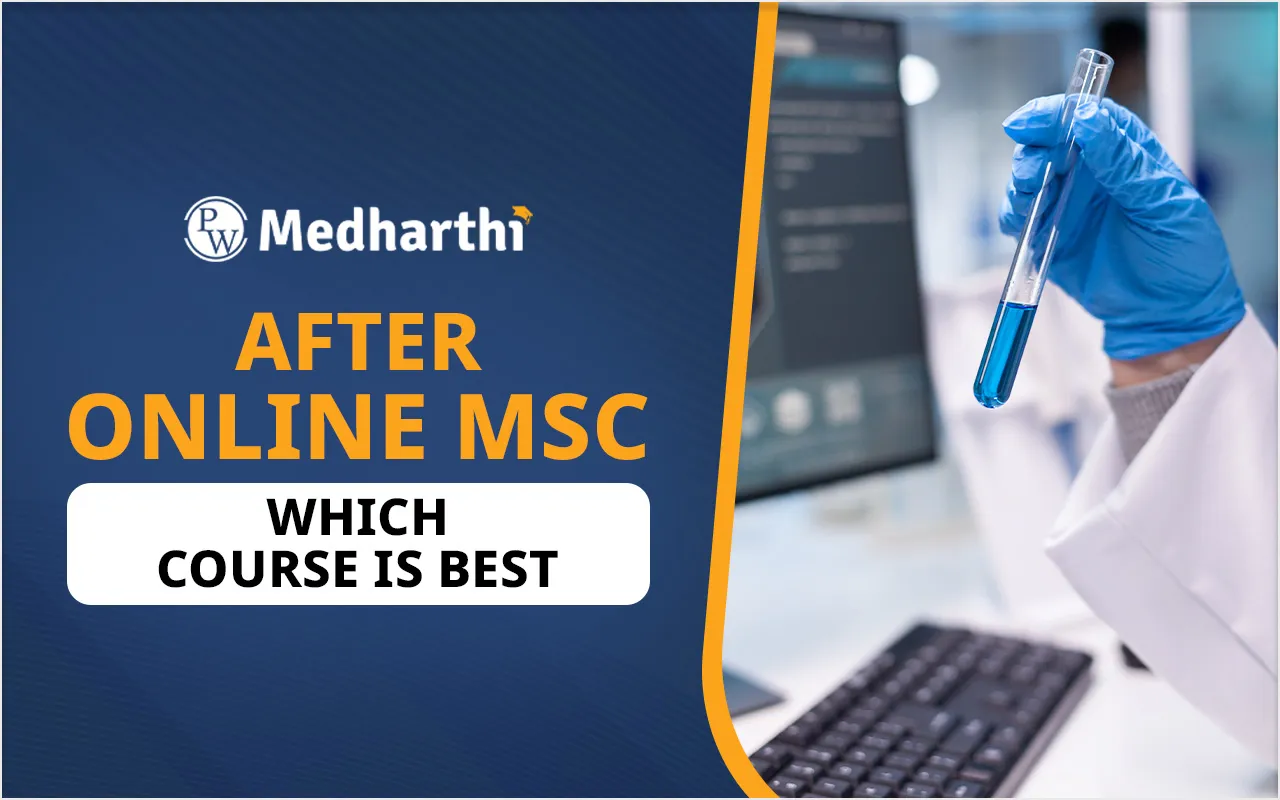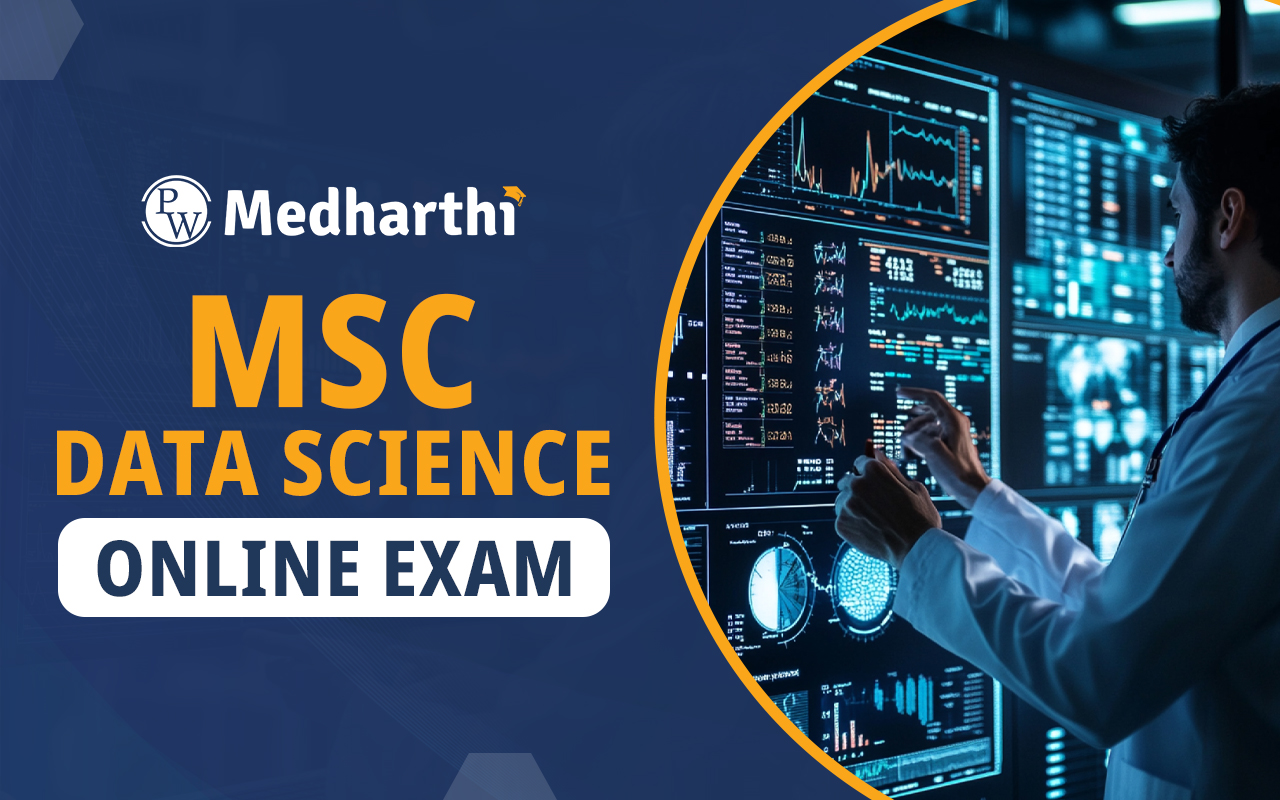

Completing an Online Master of Science (MSc) opens several academic and professional opportunities. After Online MSc which course is best depends on the field of specialization, career interests, and long-term goals. Whether in life sciences, mathematics, physics, chemistry, environmental science, or computer science, selecting the right post-Online MSc pathway helps strengthen academic background and enhance career prospects. Multiple advanced online certifications, doctoral programs, and remote industry-specific courses are available that align well with MSc qualifications.
After Online MSc Which Course Is Best?
After completing an Online MSc, selecting a suitable course depends on the individual's specialization, career goals, and interest in research, industry roles, or academic advancement across various professional domains.
Doctor of Philosophy (PhD) Online and Hybrid Options
PhD is a logical next step after an Online MSc for those targeting academic or research careers. After Online MSc which course is best for entering research-based positions, online or hybrid PhD programs offer specialization in a focused area with virtual mentorship and digital research tools. Many universities globally now offer part-time or fully remote PhD options with online thesis submission, remote defenses, and cloud-based collaboration.
Master of Philosophy (MPhil) Virtual Academic Bridge
Though less common today, the MPhil remains a transitional academic route in some systems. After Online MSc which course is best for preparing for a PhD, online MPhil programs with structured coursework and guided virtual research offer a flexible step into doctoral research, especially for those wanting additional experience before full PhD enrollment.
Online Data Science and Analytics Courses
With digital industries booming, data science is a key field for online upskilling. After Online MSc which course is best for quantitative and data roles, courses from Coursera, edX, Udemy, and DataCamp provide training in Python, R, SQL, data visualization, and machine learning. Ideal for MSc holders in math, stats, computer science, or physics.
Clinical Research and Medical Coding E-learning Certifications
For MSc graduates in life sciences or biotech, online certifications in clinical research and medical coding are in demand. After Online MSc which course is best for pharma and healthcare industries, platforms like CliniIndia, AACT, and Medvarsity offer remote training in trial protocols, documentation, and coding systems such as ICD and CPT.
Online BEd and Teaching Certifications
Teaching continues to attract MSc graduates. After Online MSc which course is best for teaching careers, digital BEd programs and online teacher training certifications (e.g., from IGNOU, Swayam, and NIOS) offer flexibility. Online coaching for UGC NET or equivalent exams is also widely accessible for those aiming at higher education roles.
Online MBA or PGDM with Technical Focus
For MSc graduates seeking leadership roles, online MBA or PGDMs with specializations in analytics, operations, or tech are beneficial. After Online MSc which course is best for combining technical and managerial skills, business schools like IIMs, ISB, and international universities offer high-quality online programs in business analytics, project management, and innovation strategy.
Environmental Management and Sustainability Online Diplomas
Graduates in environmental or natural sciences can pursue online training in sustainability. After Online MSc which course is best for CSR or conservation work, courses from Coursera, FutureLearn, and UNEP cover environmental policy, carbon footprint analysis, and climate change strategies. These cater to roles in NGOs and sustainability consulting.
Artificial Intelligence and Machine Learning Online Specializations
AI and ML are rapidly growing sectors ideal for MSc graduates in computing or math. After Online MSc which course is best for advanced tech roles, platforms like Stanford Online, Google AI, DeepLearning.ai, and Udacity provide certifications in neural networks, computer vision, NLP, and reinforcement learning.
Intellectual Property Rights and Patent Law Online Legal Courses
Science graduates interested in law can explore online IPR and patent law courses. After Online MSc which course is best for innovation protection, programs from WIPO Academy, Harvard Online, and Indian Law Institute train students in patent filing, IP litigation, and intellectual property analysis relevant for research institutions and IP law firms.
Scientific Writing and Communication Online Workshops
Effective scientific writing is essential in academia and industry. After Online MSc which course is best for communication-based roles, online workshops from Cactus Communications, Elsevier Academy, and Coursera offer modules in research writing, regulatory documentation, and manuscript development, especially tailored to scientific professionals.
Regulatory Affairs Online Pharma Programs
For MSc holders in life sciences or chemistry, regulatory affairs opens doors in pharma and biotech. After Online MSc which course is best for compliance and documentation roles, NSF, DIA Global, and SeerPharma offer remote programs covering global regulatory standards (FDA, EMA), clinical documentation, and quality systems.
Bioinformatics Online Programs and Certifications
Bioinformatics is ideal for those blending biology with computing. After Online MSc which course is best for genomics and molecular data careers, online programs from EMBL-EBI, Coursera, and Harvard provide training in sequence alignment, protein modeling, and bio-data analysis. These certifications are accessible globally and widely accepted in biotech industries.
Forensic Science and Cyber Forensics Digital Forensic Learning
For MSc graduates interested in criminology or law enforcement, online forensic courses offer valuable skills. After Online MSc which course is best for forensic roles, platforms like NIELIT, Udemy, and Skill-Lync teach forensic toxicology, crime scene analysis, and digital evidence handling. Cyber forensics is particularly suitable for computer science graduates.
Geographic Information Systems (GIS) Remote Mapping Skills
GIS is crucial for geography and geology professionals. After Online MSc which course is best for spatial and geotech careers, programs from ESRI, Penn State (via Coursera), and GIS University cover ArcGIS tools, remote sensing, and geospatial modeling for use in urban planning and disaster management.
Factors to Consider Before Choosing an Online MSc Course
Selecting the right Online Master of Science (M.Sc) program requires careful consideration of several academic and professional factors. Since the choice directly influences future specialization, employment opportunities, or further research pathways, it is important to assess the following points before enrolling:
1. Specialization and Academic Background: Evaluate whether the program’s specialization aligns with your undergraduate degree and interests. Choosing a course that builds on your existing academic foundation ensures better understanding and continuity.
2. Career Objectives: Define whether your goal is to pursue research, enter industry-specific roles, or transition into interdisciplinary domains. The curriculum and structure of the program should support your intended career path.
3. Accreditation and University Recognition: Ensure the online M.Sc course is offered by a recognized institution and accredited by appropriate educational authorities. Valid accreditation is crucial for both academic credibility and employability.
4. Curriculum Design and Delivery Mode: Review the syllabus, delivery format (live/recorded), and access to virtual labs or research tools. A well-structured curriculum with hands-on components enhances learning in technical and scientific subjects.
5. Flexibility and Duration: Online M.Sc programs should offer scheduling flexibility, especially for working professionals. Consider the total program duration, weekly time commitment, and the availability of part-time study options.
| Online Degree Important Links | |
| Online MCA Programs in India | Online BCom Course |
| Online MCA Course | Online Degree Programs |
| Regular Degree Vs Distance Degree | Online BA Course |
After MSc Which Course Is Best FAQs
Can MSc graduates pursue UGC NET for teaching positions?
What industry-focused courses are suitable after MSc life sciences?
Is management education a good option after MSc?
Which certifications help MSc graduates transition into data science?
Are there short-term courses after MSc for quick employment?













